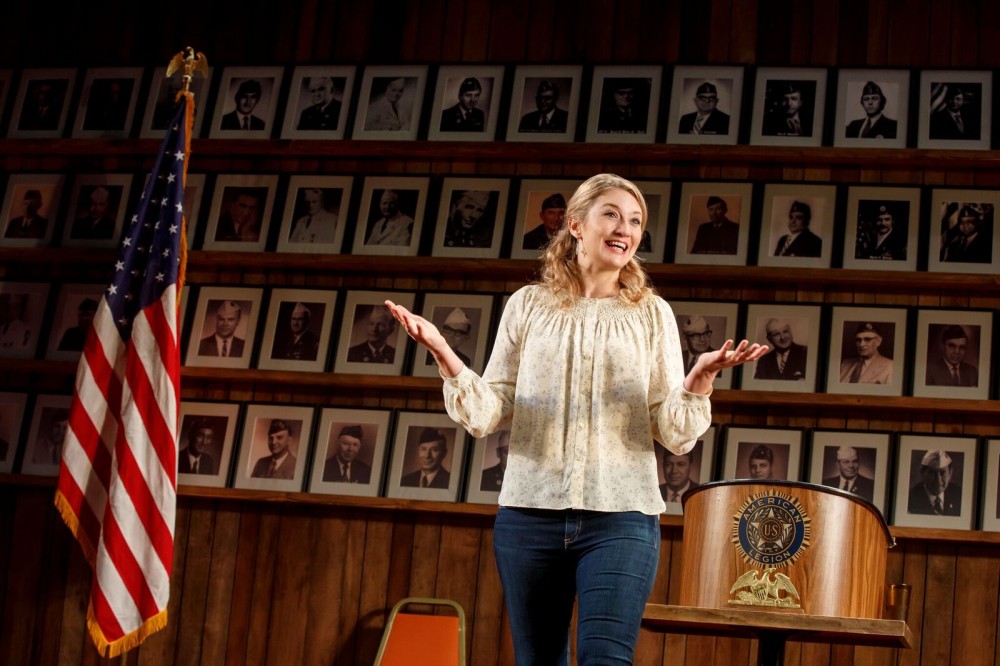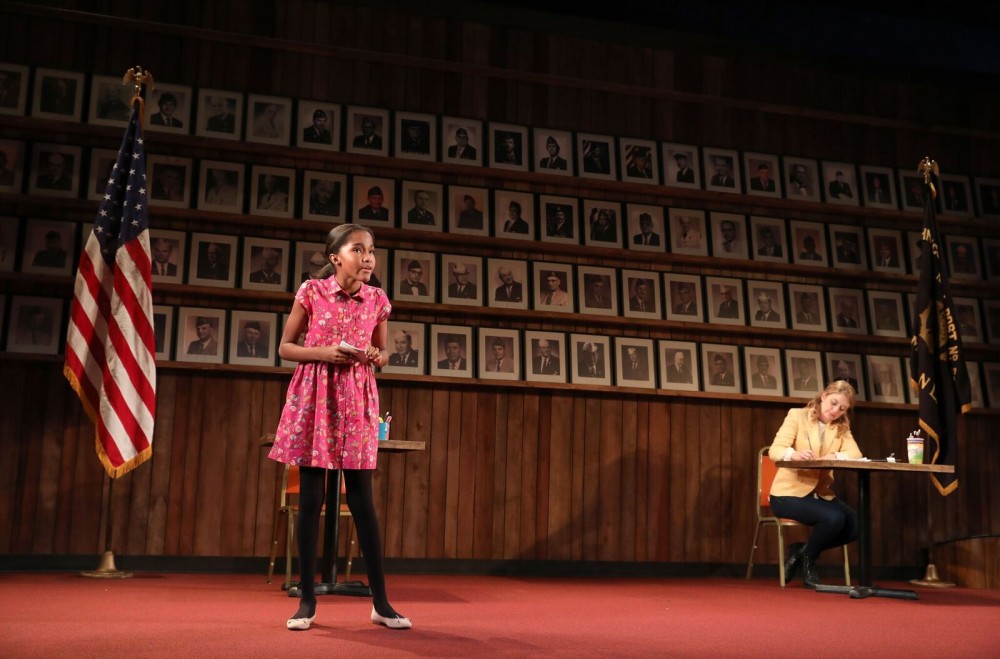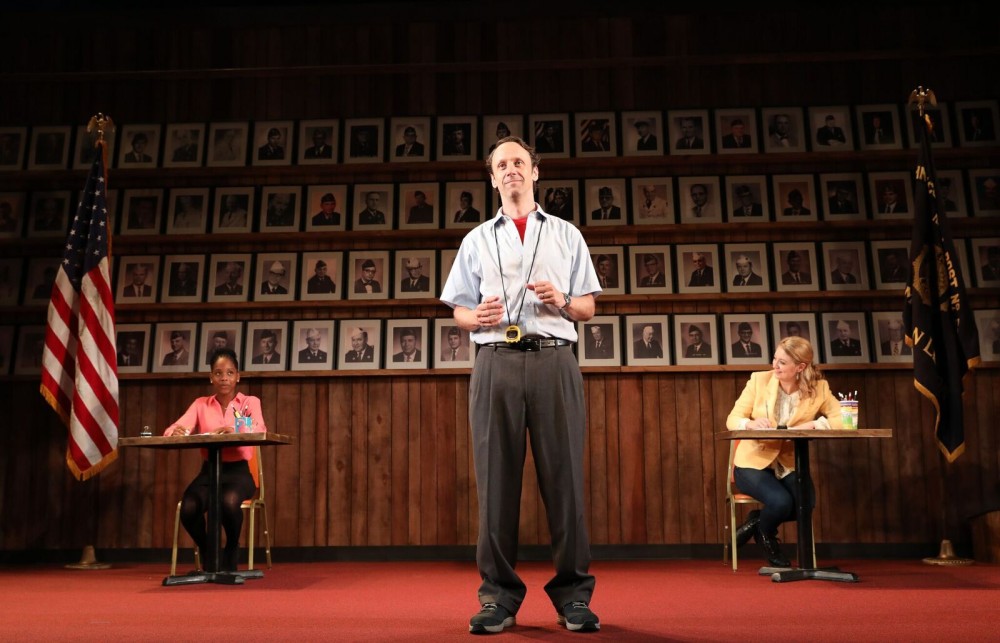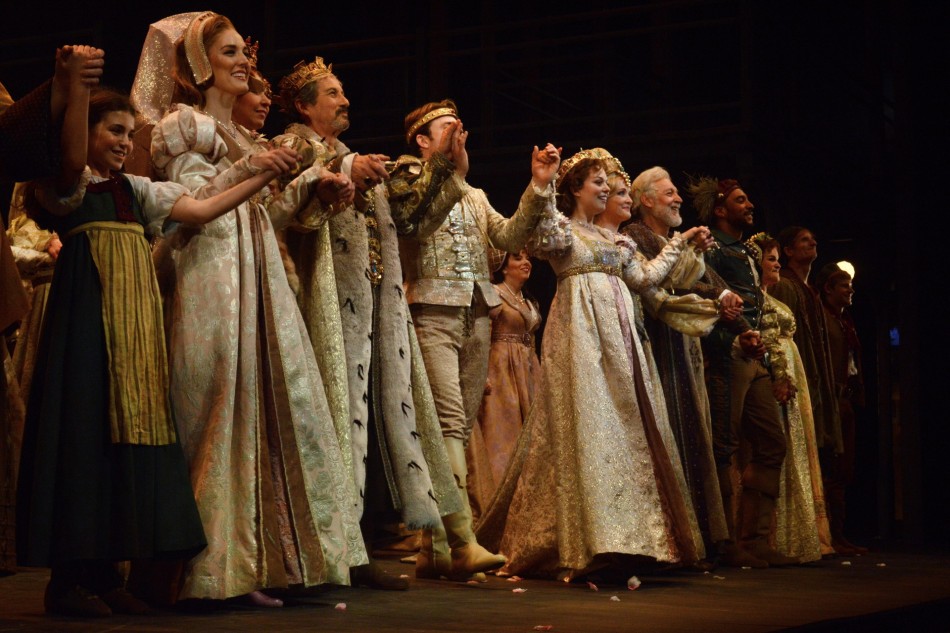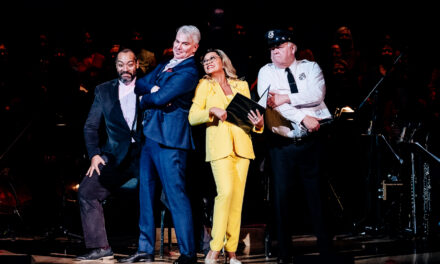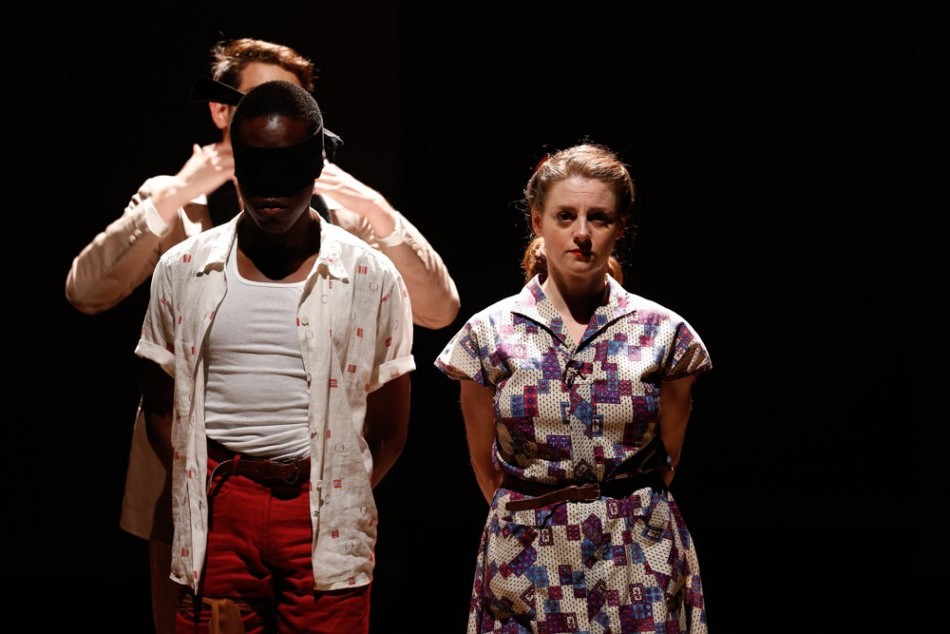by Michael Bracken
What does the Constitution mean to playwright-actress Heidi Schreck? Any number of sharply observed, pointedly challenged, deeply appreciated, and honestly questioned things, which comprise What the Constitution Means to Me at New York Theatre Workshop. Schreck wrote the largely autobiographical piece, which has the feel of a one-woman show despite two other characters, and deftly brings it to life.
Schreck tells us that at age fifteen she started building a war chest to pay for college. She participated in – and often won – contests in far-flung American Legion halls based on knowledge and interpretation of our founding fathers’ masterwork.
So fortyish Schreck, in a yellow jacket over an off-white blouse, reimagines herself as a highly energetic teenager who sees the constitution as a crucible, a test of one’s mettle. If, by the end of the show her view seems more jaded – the Constitution protects what it was intended to protect, a small group of rich white men – it’s not so much that she’s replaced her earlier vision. She’s just enlarged upon it.
Teenage Schreck goes through the entire Legionnaire drill, starting with a prepared overview, followed by spot quizzes on randomly selected amendments. She has a special affection for the catch-all Ninth, where Justice Douglas discovered a penumbra of privacy, which Justice Blackmun grafted onto the Fourteenth Amendment’s due process clause, engendering a rationale for legalized abortion.
When she gets to “the most miraculous clause in our entire Constitution,” equal protection, she notes that it applies to persons, not just citizens. She takes a breath and says, “I can’t talk about this as a fifteen-year-old.” Off come her jacket and the innocence of youth.
The play shifts. It’s not a huge shift: Schreck’s energy is still infectious, just less girlish. Her observations, already insightful, become more trenchant. The focus on women sharpens. Their second-class citizen status has been woven into the narrative from the get-go. Now it is the narrative.
Abuse and assault take center stage. Schreck relates her family’s history with rape and misogynistic violence going back generations. She recites statistics about the frequency of murder of a woman by her male partner. She points out judicial and legislative signposts that have enabled female subjugation. And she does it all in a seamless blending of the personal with the societal. You never feel like you’re being lectured.
Men are the heavies, but that’s not the point. It’s not a game of blame or shame. Women are the victims, but even that’s not really the point. The point is that for all its wonderful amendments, the Constitution has not prevented innumerable, intolerable attacks on women for centuries in a myriad of guises. The point is it has to stop.
Toward the end of the piece Schreck is joined by a high school student (played at alternating performances by Rosdely Ciprian and Thursday Williams), who debates her as to whether the Constitution should be abolished. Williams debated at the performance I attended, and she was electric: smart, beautiful, together.
Constitution has a couple of false notes, but they’re truly minor. The first involves Heidi’s friend Mike Iveson, who plays the timekeeper/moderator at the American Legion Hall. Once Heidi abandons her teenage persona, there’s no need for an American Legion functionary. Shedding shirt and tie to reveal a tee shirt, Mike notes the seriousness of representing “positive male energy” and shares a few anecdotes about being and not being openly gay. I’m all for positive male energy, but not for the sake of artificial balance. The sequence seems shoehorned in. Why?
Audio-only recordings of the Supreme Court, used on occasion to illustrate the justices’ process, don’t really add anything. Without video, they seem dry, and they momentarily distance us from our very able and engaging tour guide.
Schreck is a marvel. Her mostly monologue has the casual intimacy of a conversation with a friend and the authority of encyclopedic erudition. Most remarkable, I think, is Constitution’s lack of the bitterness that could so easily accompany the atrocities Schreck recounts. She’s out to illuminate, not castigate.
Through October 28th at New York Theatre Workshop (79 E. 4th Street). https://www.nytw.org/. Ninety minutes with no intermission.


